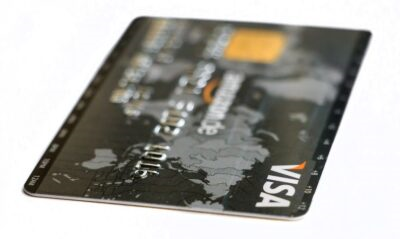Before delving into the dangers of eliminating cash and mandating that all transactions be conducted by digital means, let us briefly discuss the legal aspects of money. In the United States, as in all economies that have legal tender laws, only cash is recognized as money. Some may think that the balance of their bank accounts is money too, but that is not quite the case. Your bank balance is one step removed from legal money.
All banks must maintain minimum balances of reserves, in cash held either in their vaults—a very small amount—or in their “reserve accounts” with their local Federal Reserve Bank branch (there are twelve of them). These reserve account balances may be converted to real money, or cash, at your bank’s discretion. However, the total cash in our economy also includes cash held outside the banking system, such as the money in your wallet, cookie jar, or personal safe deposit vault.
The total of bank reserves plus cash held outside the banking system is known as the monetary base. The monetary base is not the same as the money supply. Most of the money supply is composed of bank credit not backed by reserves. When banks make loans, they credit your account, which becomes bank credit money. Yes, this money was created by the bank out of thin air. Notice that the banks did not create reserves, only credit money, which is not the same thing.
As of July 2023, the monetary base in the United States was $5.5 trillion, whereas M3—the total bank credit money—was $20.9 trillion! So, if everyone demanded real money (cash), the banks would be able to honor only about one-fourth of the requests. The possibility of your bank failing is real. Over nine thousand US banks failed during the Great Depression of the 1930s.
Risks of Electronic Payments
Your ability to hold real cash, not just bank balances accessible by check or electronic means, protects you from the inevitable infrastructure problems associated with any electronic system but also from the instantaneous seizure of at least some of your money. Cash is anonymous whereas a bank account is not. If something happens, you will still be able to function to the limit of the cash you happen to have on hand.
Now, let’s say that cash has been eliminated by some legal means and that you have angered the powers that be for some reason—probably for opposing them and asking others to oppose them too. All the banks must do is to freeze your bank account or eliminate it entirely. There are two examples of this very thing happening in the recent past.
First, the government of Canada froze the bank accounts of all those participating in the Canadian truckers’ general strike plus those who helped them. Second, British politician Nigel Farage had his accounts closed for political reasons and found that no other British bank would serve him. Without the means to use money, Farage came very close to emigrating. Just think about that for a moment. You could not fuel your car, buy groceries, pay your rent, or do a hundred other things without access to a bank account.
Risks of Central Bank Digital Currency
All of the world’s major central banks are drawing up plans to institute digital currencies that they themselves control. This is very dangerous for our civil liberties. Now the government would not have to seek the cooperation of the banks to freeze your accounts or “debank” you entirely, as the British banking system did to Nigel Farage. At the stroke of a keypad, you would not have access to your financial accounts—no fuel for your car, food for your family, or heat for your home.
No one should be allowed to hold such enormous power, which really is a life-and-death issue. Naturally, digital currencies are being promoted as efficient and modern. They are no such thing. This is a civil liberties issue and needs to be stopped.
